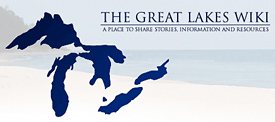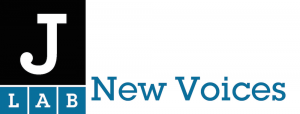Dave Poulson recently wrote a column, “Wising Up About Wiki,” describing his transition from wiki naysayer to director of the ambitious wiki project covering environmental issues in the Great Lakes region. The piece appeared in the spring 2007 issue of EJ Magazine, which is run out of Michigan State University’s Knight Center for Environmental Journalism where Poulson is the associate director.
 Content has been piling up on the Great Lakes Wiki, which is operating but has not been officially launched. Project Directors Dave Poulson, assistant director of Michigan State University’s Knight Center for Environmental Journalism, and Assistant Professor Cliff Lampe hope to give a green light to the site soon.
Content has been piling up on the Great Lakes Wiki, which is operating but has not been officially launched. Project Directors Dave Poulson, assistant director of Michigan State University’s Knight Center for Environmental Journalism, and Assistant Professor Cliff Lampe hope to give a green light to the site soon.
The delay has been a debate about when a citizen-powered and constantly changing wiki is ready. Poulson believes a better-designed site would engage visitors. Lampe thinks the site should launch before worrying about the aesthetics and the community can help resolve such issues. In the meantime, the directors hired a web designer to come up with templates for the wiki, which now has a design similar to Wikipedia. They also hired a coder to implement design changes for all the content.
Students at the Michigan State University have provided the bulk of the content, with a special topics journalism class producing stories and structures for various areas of greatlakeswiki.org, such as Areas of Concern (on polluted regions), Ecology, Culture, Recreation, Commerce, Great Lakes Organizations and Geography. An investigative reporting class at MSU contributed a series on the Red Cedar River. Poulson and Lampe see students as an integral part in keeping the wiki up to date. In the spring semester, one student is overseeing development of the wiki as an independent study. Another class offered extra credit to students who participated.
Students used video and still photos with their stories, and linked to relevant mainstream news articles. Portals were designed for community contributions and several aspects are designed to coax public involvement, such as a section for Great Lakes vacation memories; models for reporting on industries in the region; a section for information on Great Lakes artists, musicians and writers; and an in-depth exploration of one environmental area of concern that is a model for pages on other areas.
While Poulson and Lampe’s journalism students had a hard time with the concept of giving up editorial control of a wiki to citizens, some students from other disciplines wanted to push an environmental agenda. Activist interests may continue to be a concern. “A significant question is whether we can maintain some kind of journalistic integrity or whether we become a tool of biased activism,” Poulson and Lampe write. “The challenge is to engage the scientific, business and other communities in a way that creates a holistic report.”
Whether the wiki can attract a large enough community to add a steady stream of new content remains to be seen. The format has its limitations, too: Students were disappointed that Flash and other technology didn’t work on a wiki. “Another question is whether the wikiness – the ability for anyone to add content – outweighs those limits,” Poulson and Lampe write. They also need to expand the content beyond Michigan to reach the entire Great Lakes region, which spans eight states, from New York to Minnesota.
Only eight citizens attended a fall workshop in which students demonstrated the site and how to use a wiki. Poulson and Lampe note that the workshop was held on short notice after an announcement on a regional listserv.
The project will concentrate on marketing next. But, despite little promotion thus far, web surfers have found the site. One piece of evidence: Greatlakeswiki.org was vandalized with fake stories that chronicled a Godzilla attack, a new great lake uncovered in South Dakota and the danger of zombies as an invasive species. “To some extent, vandalism is a healthy sign for a site like this,” Poulson and Lampe write, “indicating that it’s attracting effort from a larger community.”



